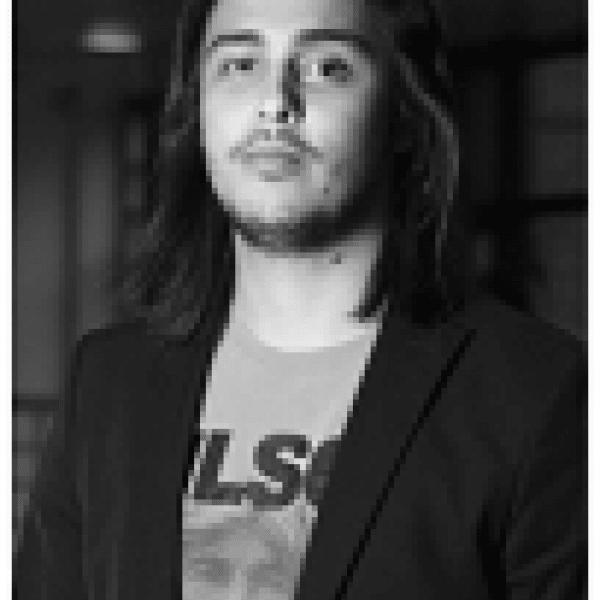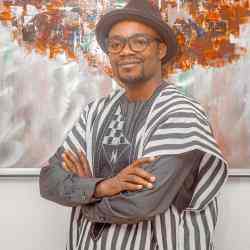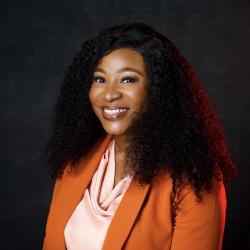Introduction
Christian Vanizette has designed an accessible, yet highly structured approach for social entrepreneurs worldwide to resolve strategic and operational challenges, by drawing from the collective intelligence of a global network of citizens willing to engage their skills and creativity for social change. In doing so, Christian is allowing the citizen sector to shift from a paradigm in which organizations recruited volunteers inspired by their mission over the long-term, to a model in which they mobilize teams to work toward a goal over a given period, in an open source way.
L'idée nouvelle
Christian engineers and fosters a global community of thousands of individuals and groups who share a common passion for social change and engage in solving specific challenges of social entrepreneurs. His carefully thought-through online and offline collaborative processes enable any social entrepreneur to submit a challenge to the MakeSense community and tap into its collective wisdom to obtain a satisfying solution within a few days.
Christian has made this possible through highly structured problem-solving mechanisms that use collaborative design as their foundation and that are open sourced within the community. Every time a social entrepreneur submits a challenge to the community, Christian’s core community members define the best approach to resolve it, whether online or offline and in shorter or longer formats; recruit the appropriate team of problem-solvers among the community; facilitate the challenge-resolution process; and derive lessons from the experience in order to constantly improve problem-solving tools and feed them back into the community.
The power of MakeSense also lies in the community’s openness: Christian has created entry points, engagement formats and incentives for anyone who wants to participate in positive social change to easily join the MakeSense community. He started with the young idealists 2.0 who are familiar with new technologies and have fast-paced lives and engagement capacity, before developing strategies to include professors and students in university contexts, and professionals in their work environment. In doing so, he is mobilizing the broad range of skills, the necessary passion, time and commitment for the community to live and fuel social innovation.
Le problème
Citizens’ engagement in the social innovation sector has been changing dramatically these past few years. Whereas until recently organizations deployed vast marketing efforts to promote their mission statements and recruit volunteers, they are seeing that these strategies are bearing fewer and fewer results. On the one hand, they are coming to realize that it is no longer enough for them to rely on a given circle of volunteers and to delegate low-value added tasks; or even to rely on the pro bono expertise of corporate partners.
In a rapidly changing and increasingly complex world, social entrepreneurs need a more and more diverse set of expertise, and an extremely fast turnaround of intervention to resolve some pressing challenges. In this new world, collective intelligence and co-created solutions are a must. On the other hand, the aspirations of volunteers have changed: younger generations are less prone to engaging over the long term. They want the thrill and convenience of participating punctually in actions, to engage on a broad variety of issues and tasks, but also to see the concrete outcomes of their participation.
There is hence an opportunity to move from the old citizen engagement paradigm into a new one. This is however extremely challenging: organizations do not have the tools, capacity or time to manage large groups of short-term volunteers, nor do they have the expertise to facilitate collaboration and the co-creation of solutions. Citizens do not know where to find relevant opportunities for engagement that meet their skills, time and aspirations for engagement, and oftentimes get frustrated when their attempts do not lead to concrete, visible results. There appears to be a great opportunity to match offer and demand. This however also requires careful design and well-engineered processes to ensure that this matchmaking actually triggers and accelerates social innovation and positive social change.
La stratégie
More than an organization, Christian has managed to create a true movement of citizens who make positive social change happen by helping social entrepreneurs around the world resolve their challenges. Within two years, Christian’s MakeSense community has grown to reach over 10,000 members in Europe, North America, but also China and Russia; and to support nearly 300 social entrepreneurs in 45 cities. The pace of growth keeps accelerating as the movements’ champions are recruiting new members daily through online and offline viral mechanisms, as more and more social entrepreneurs are submitting their challenges and as the community develops new formats and processes for problems to be resolved: by 2015, Christian expects MakeSense to have 300,000 members in order to allow any social entrepreneur to find a relevant solution to their challenges within three to five days.
Every dimension of MakeSense is carefully designed by Christian and a team of designers who make sure to optimize recruitment and engagement processes, problem-solving mechanisms, and their matching with challenges. At the core of the movement is a group of highly engaged individuals who are carefully recruited for their commitment and passion for social change. Nicknamed Gangsters (or GangMembers in the US for cultural reasons), they play a key role in building relationships with social entrepreneurs, expanding and anchoring the community, and leading problem-resolution processes. The broader community consists of individuals or groups who participate with different levels of commitments and time. Nicknamed SenseMakers, they constitute the collaborative brainpower that allows finding solutions to social entrepreneurs’ challenges, but also more simply help recruit new members and skills or spread the word.
When a social entrepreneur contacts MakeSense with a challenge, either because MakeSense has reached out to them or through the web, they are connected to a GangMember who helps them reframe their problem in a clear, actionable way, and who defines the best collaborative format to use in order to come up with a solution, either by tapping into the base of existing processes or by creating a new one. Historically, standard interventions were gatherings of 10 to 20 SenseMakers who would work together through a carefully-designed, facilitated process and come up with a solution. Such events are called Hold Ups. Today, there are 8 different documented methodologies, and 16 more are in the works. Once the process is defined, GangMembers then spread the word online and offline to attract the right SenseMakers into the problem resolution process, and play a key facilitation role. Each experience feeds back into the design of the collaborative process and helps improve the body of knowledge that is at the core of MakeSense. Every three months, GangMembers get together for a few days to collaborate on improving existing tools and develop new ones, in a format called SenseCamps. Constantly improved, this knowledge is intentionally open sourced within the community but also beyond, and is today used by many citizen organizations (COs) who are “powered by MakeSense” in their problem-resolution practices.
What was initially a movement of young people is now growing to include a broad variety of members. Members typically hear about MakeSense through word-of-mouth, online social networks but also through problem-resolution events organized around the world by some GangMembers, who travel to expand the movement and conduct SenseTours. More recently, Christian and his teammates have designed engagement processes for new audiences: SenseSchool develops and offers workshops to professors and universities to engage students in structured, highly effective problem resolution processes for social entrepreneurs, and have notably worked with Said Business School in Oxford. CommonSense offers companies problem-resolution activities engaging their collaborators in intrapreneurship processes. Both SenseSchool and CommonSense operate as business entities whose income serves to fund the actions and expansion of MakeSense; their revenue has been multiplied fourfold within one year and should allow MakeSense to be sustainable by 2015.
La personne
Christian grew up in French Polynesia. Of French, Vietnamese and Polynesian origins, he stems from a recognized, strongly committed and socially engaged family: his grandfather set up the first social security system in Tahiti, and his parents worked in the public sector to improve the conditions of the local population. His entrepreneurial apprenticeship started at 15 when he launched an anonymous blog about politics and economics, the first of its kind to give an independent overview of the situation in Tahiti, and especially discussing colonialism, soon to become the most read in the region.
To break away from insularity, the comfort zone of his family and challenge himself, Christian moved to Europe to pursue his studies. He entered Euromed Management—School of Management and Business in Marseille, France, because he knew that he would have the space he needed to lead entrepreneurial experiences and innovate. He got involved with a broad range of COs like Accede, an organization helping unemployed people launch their own business, and also participated in launching a microfinance project in Benin. Christian’s studies were also a great opportunity to learn about collective intelligence and collaborative processes, as he chose his internship to do so: he worked with Gemalto, a leading digital security firm, where he learned a lot about creativity, innovation, and design-thinking processes and focused on developing a microfinance and BOP approach within the company. Christian was also the first intern with an incubator of innovative projects called Business Innovation Garage, where he helped young entrepreneurs and contributed to several projects related to technology and mobile banking. These experiences allowed him to gain training from some of the most recognized creativity experts in Paris and San Francisco.
Sparked by a book by Mohammad Yunus, in 2010 Christian embarked on a trip across Asia to meet social entrepreneurs and to help them solve their challenges: that experience became his own sense-journey. He saw how difficult it was for social entrepreneurs on the ground to find solutions to their problems, and their lack of time and capacity to recruit and manage the right volunteers. And as Christian curated a blog about his experience, which was followed by a growing community of supporters, he also saw the potential of a huge community of young people around the world to contribute their creativity to helping social entrepreneurs’ problem-solve. This sparked the idea of MakeSense: several of these initial followers are today’s GangMembers. Not surprisingly, many GangMembers are becoming social entrepreneurs, and are further expanding the MakeSense movement for social change.




